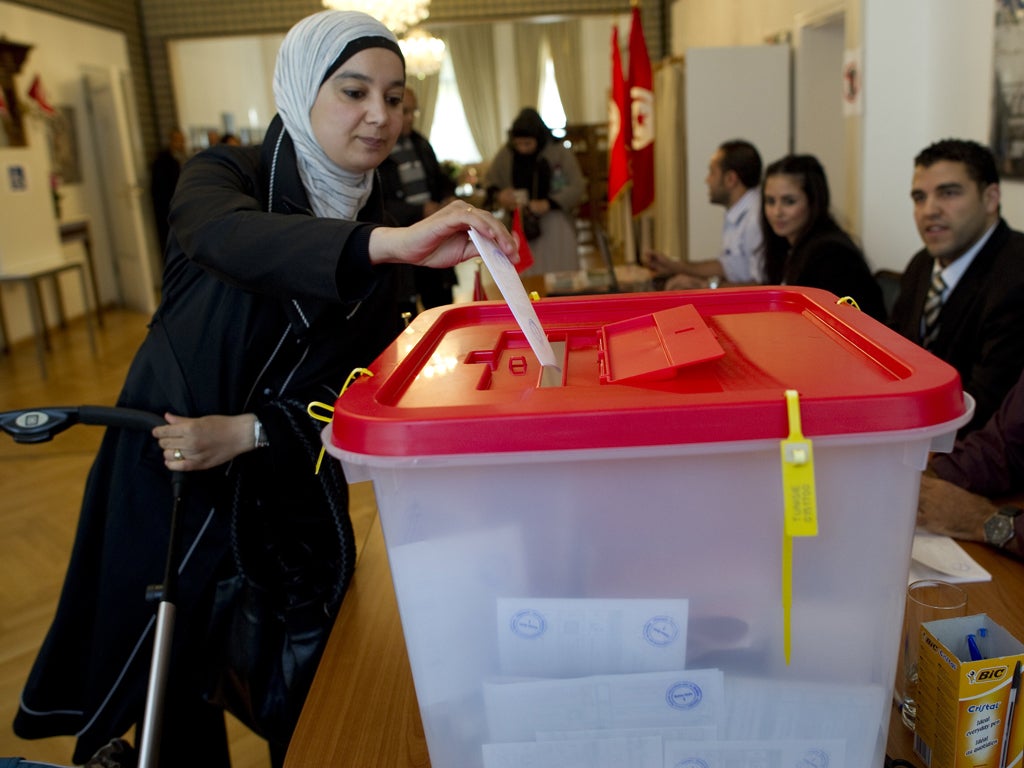Tunisians get a crash course in democracy ahead of historic vote

Around Tunis, locals are craning necks to study giant billboards that depict colourful cartoon characters going through a 12-step process.
These ads explain how to vote: from taking ID cards to the polling booth, to dipping thumbs in ink as proof of voting and placing completed voting slips into sealed containers. They also explain some voting rules: no mobile phones; no attempts at political influence in the queue for the voting station; priority given to the pregnant and elderly.
Issued by the Independent High Authority for the Elections (ISIE), these ads are part of a major national campaign, including regular TV and radio spots, online banners, T-shirts, stickers, and messages through YouTube, Twitter and Facebook.
“It is our first democratic elections” says Emna Doounagi, ISIE communication manager responsible for this multi-media campaign. “We have so many people that have never voted before.”
On Sunday, Tunisia will hold its first free elections since the revolution that ousted reviled dictator Zine el Abidine Ben Ali.
The last Tunisian election, in 2009, gave Ben Ali a fifth term with an improbable 90% of the vote and an equally unlikely 90% voter turnout. Rigged elections throughout his decades-long rule meant that Tunisians simply didn’t bother to vote. Many Tunisians have said they assumed Ben Ali would always be president.
The ISIE campaign tries to assure that it’s worth it this time. “We have to convince people to go to the polling centre,” says Doounagi at ISIE, which is also the Tunisian body observing the elections. To make it really easy, the organisation is running an information hotline and messaging service that texts voters directions to their polling station.
Both the scale and the basic level of instructions relayed by the ISIE campaign are not surprising, says Hamadi Redissi, professor of political science at Tunis Al Manar university and president of the Tunisian Observatory for a Democratic Transition. “People are not used to this process at all,” he says. “With so many parties and independent lists, and a system of proportional representation, people need very clear explanations.”
Over 100 parties and some 11,000 candidates are vying for 217 seats in Sunday’s elections. Around 7 million of Tunisia’s population is eligible to vote and of those, around 60% have registered to do so. Some 10,000 observers, the vast majority of them Tunisian, will be monitoring the elections. All political advertising and campaigning has been banned prior to the elections.
Join our commenting forum
Join thought-provoking conversations, follow other Independent readers and see their replies
Comments
Bookmark popover
Removed from bookmarks